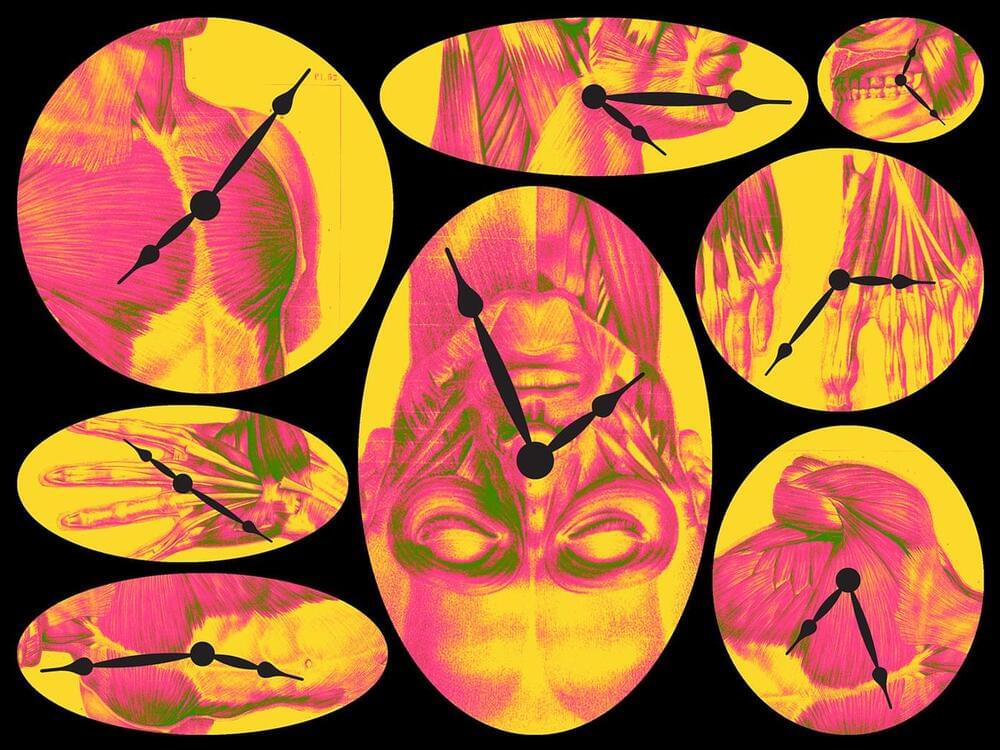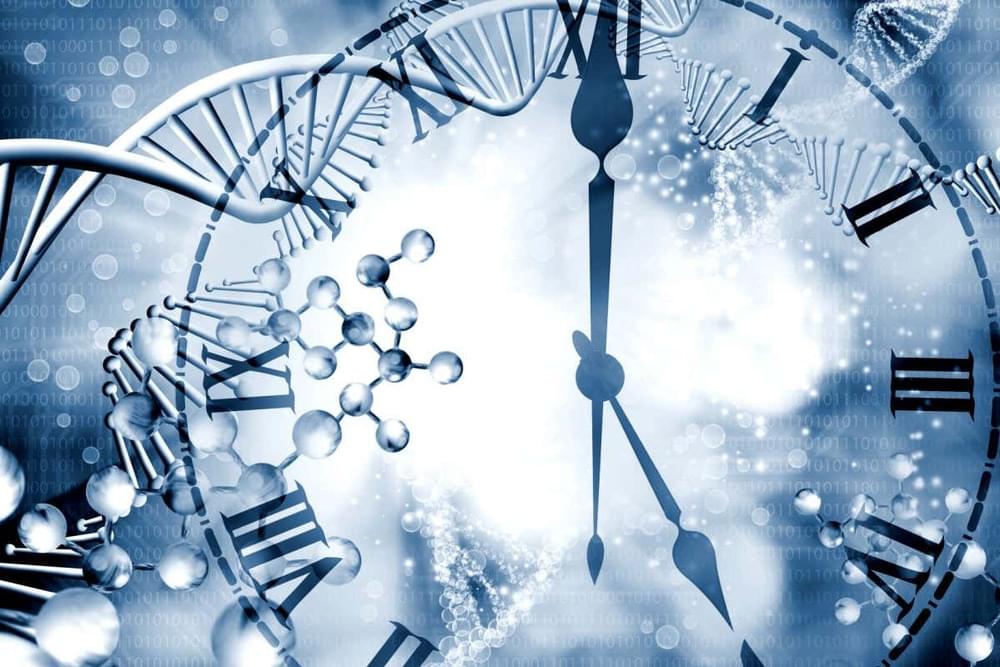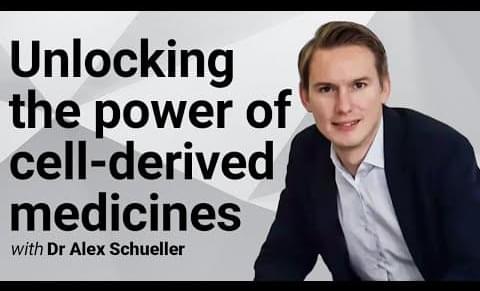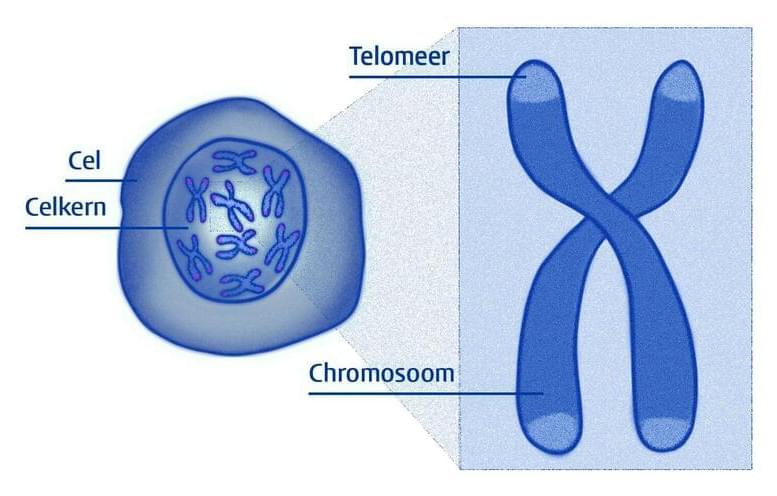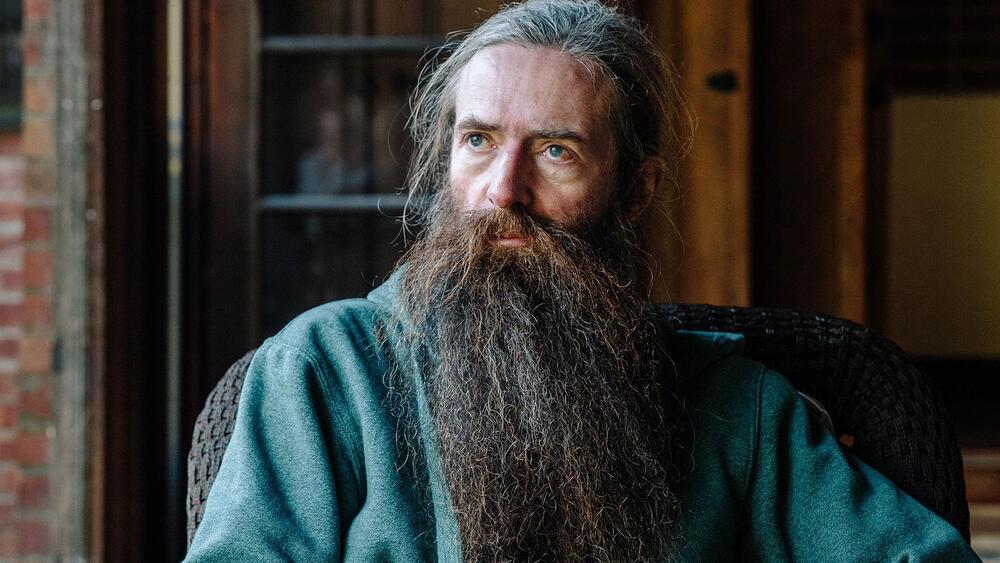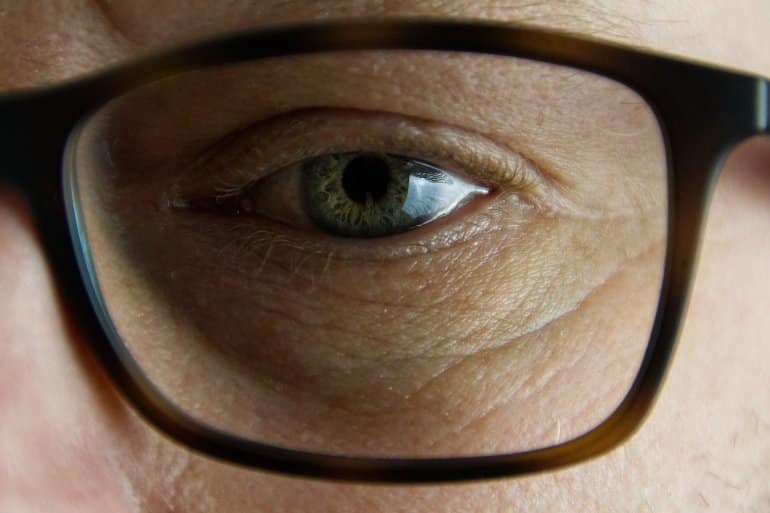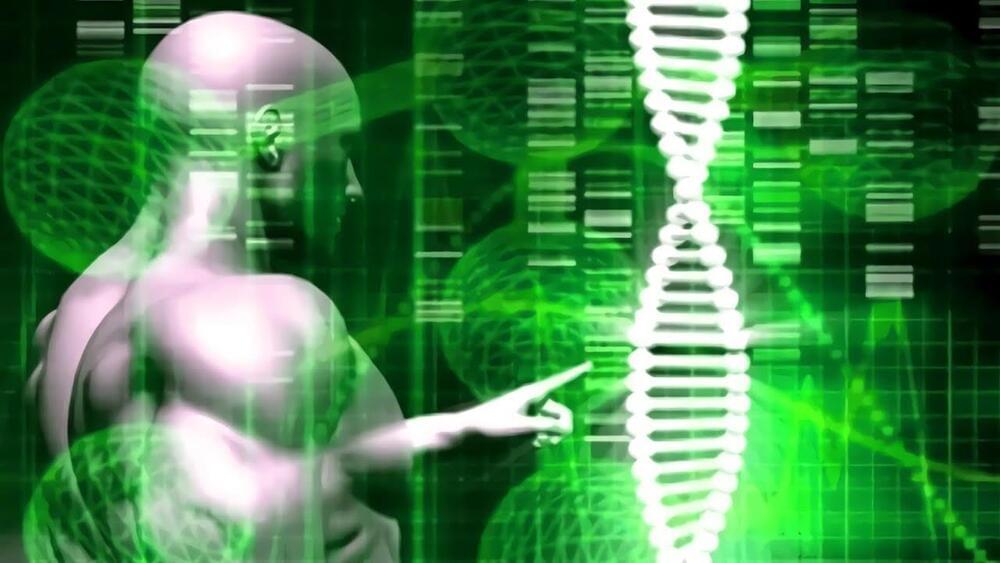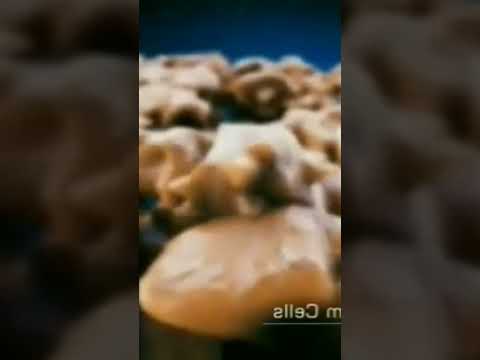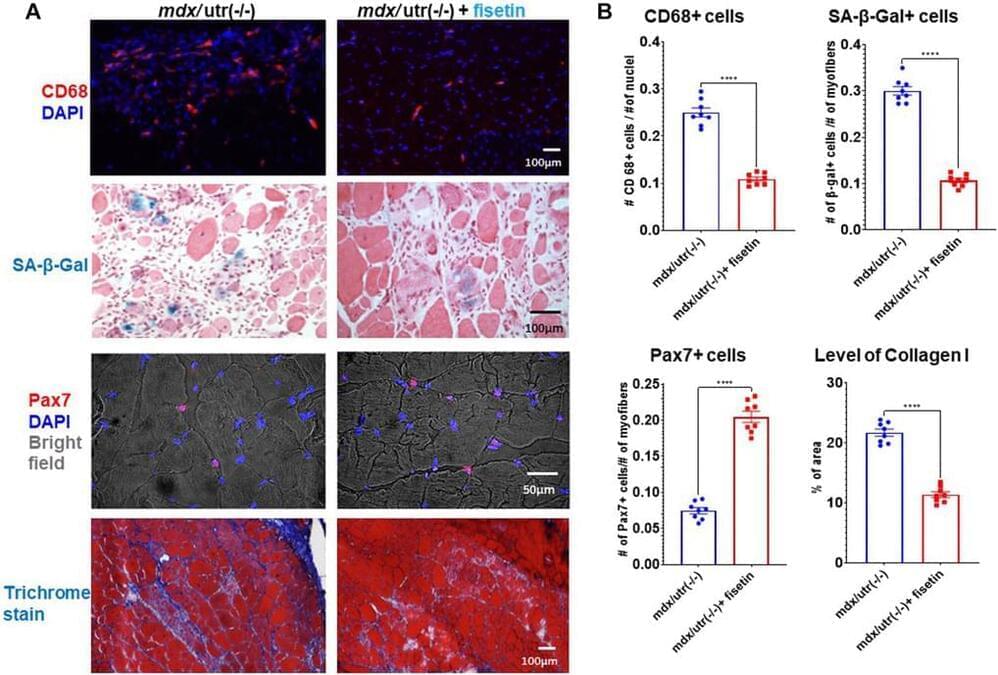
Senescent macrophages are in fact also found to express senescence-related markers p16(Ink4a) and β-galactosidase (β-gal), and promote inflammation in diseased tissues [25, 26]. Our previous work has indicated increased cellular senescence in dystrophic muscles of mdx/utr(−/−) mice [3], however, whether or not macrophages in particular develop cellular senescence and promote senescence associated phenotypes was still unknown. To this end, here we further examined mdx/utr(−/−) mice and solved these puzzles.
Immune cells in the skeletal muscle are activated during muscle injury and promote the process of muscle regeneration by coordinating with muscle stem cells. However, studies with severely diseased muscles further demonstrate that immune cells can become dominantly activated and is inductive of increased fatty infiltration and fibrosis formation, while at the same time potently repress the proliferation and function of muscle stem cells [27]. Our current results in severely dystrophic muscle reveal a similar situation of interaction between macrophages and MPCs, showing that the function of MPCs is repressed by the senescent macrophages. As senescent cells accumulate in the aged or diseased tissues, it can exert profound effects on the growth and function of normal cells by releasing SASPs [9, 10].
